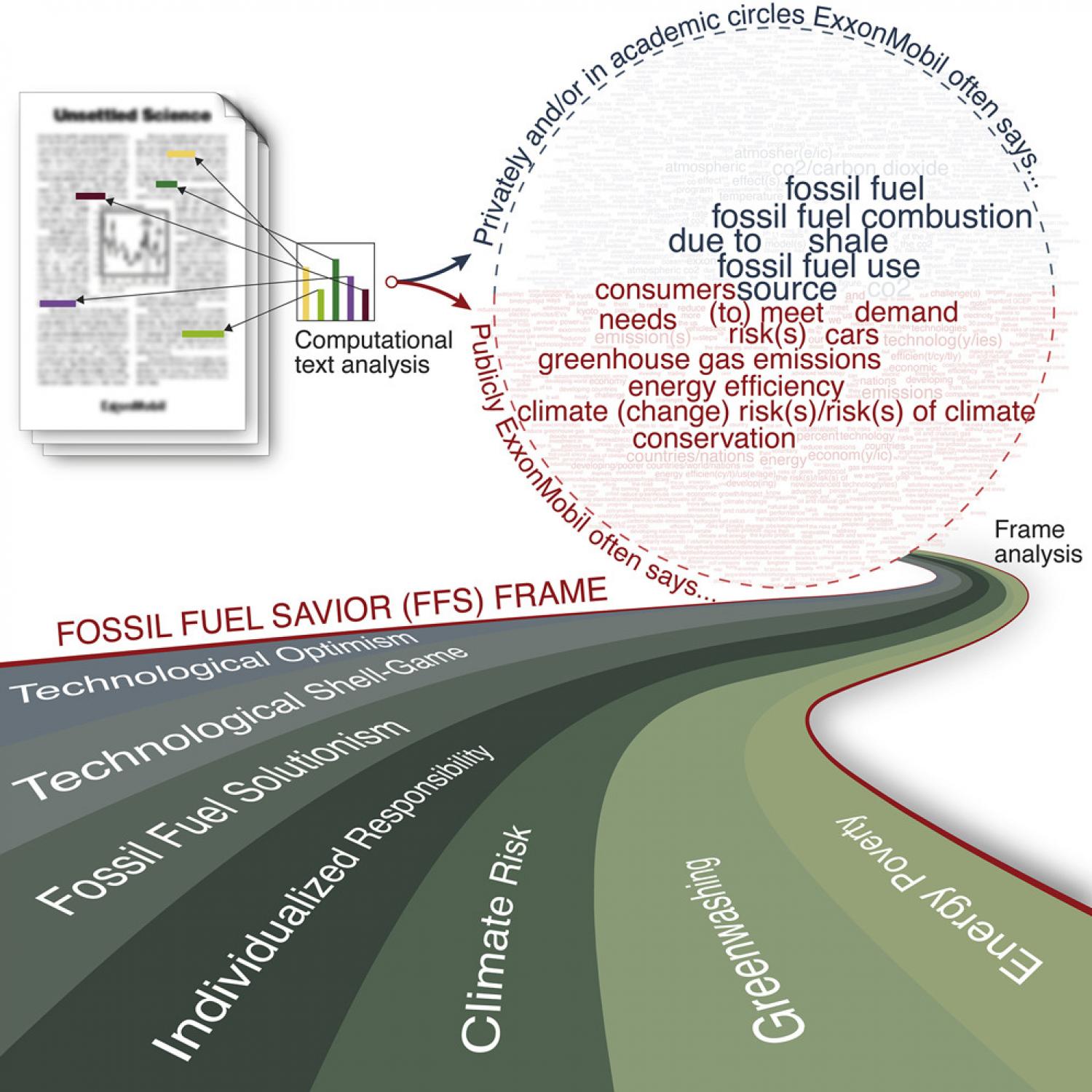
This paper investigates how ExxonMobil uses rhetoric and framing to shape public discourse on climate change. We present an algorithmic corpus comparison and machine-learning topic model of 180 ExxonMobil climate change communications, including peer-reviewed publications, internal company documents, and advertorials in The New York Times. We also investigate advertorials using inductive frame analysis. We find that the company has publicly overemphasized some terms and topics while avoiding others. Most notably, they have used rhetoric of climate “risk” and consumer energy “demand” to construct a “Fossil Fuel Savior” (FFS) frame that downplays the reality and seriousness of climate change, normalizes fossil fuel lock-in, and individualizes responsibility. These patterns mimic the tobacco industry's documented strategy of shifting responsibility away from corporations—which knowingly sold a deadly product while denying its harms—and onto consumers. This historical parallel foreshadows the fossil fuel industry's use of demand-as-blame arguments to oppose litigation, regulation, and activism.
